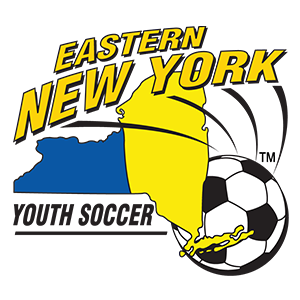By Tim Bradbury, Director of Coaching Instruction, Eastern New York Youth Soccer Association
There are an ever increasing army of soccer coaches that operate in the Eastern New York Youth Soccer Association (ENYYSA) portraying themselves as professional coaches that are far too easily employed by clubs that don’t do their research on the qualifications that a coach has and seem content just to accept the “I played at college” explanation.
I get it, there is money to be made. I understand that college players, high school kids and lots of other people with nothing to do want to earn dollars. I also understand that many within this group have identified the youth soccer market as a place to make dollars quickly. These people take a quick look at the game and those that teach it and arrive at the, “I can do that” moment quicker than most people can shout goal. I do not blame this group for wanting to make money or wanting to do it is easily as possible. After all we all need to get by.
I do hold the group accountable for not making any attempt to learn about the game and how it should be taught. I further question the moral integrity of the impostors who go about pretending to be professional coaches with no understanding of child development, effective teaching strategies, LTAD ( long term athletic development), or the game itself. Simply being a college player in no way means you are equipped to teach the game. Worse than these individual impostors are the companies that employ them.
Having a soccer company and making money is not a crime. Many provide a good service with adequately trained coaches and charge a fair $ for the service. These companies are an entirely different group than those who have no internal training program, no set criteria by which they employ staff and no set curriculum, rather they take on all-comers, put them in a uniform, call them coaches and there the training ends. These people are the imposters, they have no interest in growing the game and simply take the $ and smile.
In most business markets, impostor companies such as these are quickly exposed and ultimately fail and disappear fairly quickly. Unfortunately, youth soccer clubs are not professionally run. Often they have no set criteria or minimum standards to which trainers who work in their Club must qualify. All too often I am finding that a board member knows a kid who knows a kid who played in college. This seems enough for Clubs to throw thousands of $ away on inappropriate training. ENOUGH IS ENOUGH.
I would encourage all Clubs employing a training organization or trainer insist they meet the minimum standards below
• All staff have a background check and have been cleared by the state.
• All trainers employed and used have a minimum of NSCAA National, US Youth National coaching certificate or USSF C license.
• All staff can produce at least an eight week age appropriate curriculum.
• Each company can provide examples and schedule of their own internal training program.
• The Director or Curriculum advisor of said company have a minimum of a USSF A license or NSCAA Premier Diploma.
All the above are easy to request, not complicated to produce and easy to check upon. When it comes to paying a “professional” to train your kids the above are the minimum that parents have the right to DEMAND. Those clubs who continue to employ the impostors and cowboys because of a friendship on the board need to be held accountable for their actions – after all why should the kids suffer?
I would add that all parents who are paying good money to have their child professionally trained has the right to know that the individual doing the training is suitably qualified – they do not however have the right to micro mange the actions and decisions of the qualified trainer they have employed. This is when the parents become the impostors and under the disguise of “knowing what is best in terms of player development they make demands based upon how many minutes their child is getting, or position they are playing. These parent imposters driven by their own agenda and mission are as dangerous to the growth of a team as are the clubs who pay no regard at all to the qualifications of professional trainers they employ. We need to get back to a time 20 years ago when parents were more likely to support a professional trainer or teacher rather than seek ways to undermine and remove them every time something happened that did not meet their personal agenda.

